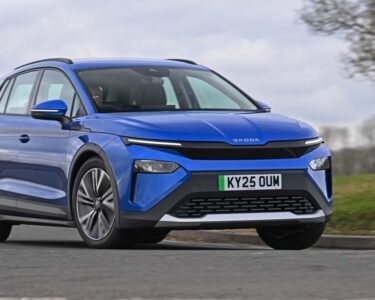Amidst an evolving automotive landscape, Cleveley Electric Cars, based in Cheltenham, is charting a new course by attempting repairs on electric vehicles (EVs) down to the component level, a move that could revolutionize cost-efficiency for EV owners. However, the company faces significant challenges in accessing necessary software from Main Dealers to register used parts onto the vehicles’ systems, a critical step in the repair process. This endeavor not only highlights the potential for reducing electronic waste and saving consumers money but also underscores the tension between independent repair shops and manufacturers over access to diagnostic software and repair documentation.
Repair Revolution: Saving Costs and the Environment
Cleveley Electric Cars has been building up a stock of used parts and recently expanded its service nationwide with a mobile unit. In a notable instance, the company successfully repaired an I3’s battery fuse fault, a move that saved the customer thousands of pounds. This was achieved by replacing the main fuse based on a correct diagnosis, contrasting sharply with a previously incorrect one that could have led to unnecessary expenditure. Such cases spotlight the cost-saving and environmental potential of component-level repair in the EV industry, emphasizing the importance of sustainable practices and the right to repair.
Software Struggles: The Battle for Access
The crux of Cleveley Electric Cars’ challenge lies in securing cooperation from Main Dealers to use their proprietary software, which is essential for registering used parts with the vehicle’s main computer. Despite their success in repairs, the company often finds itself at a standoff with manufacturers over software access. On one occasion, only a direct appeal to the company’s head office resolved an issue where a repaired part needed to communicate with an I3’s main computer, highlighting the systemic barriers independent repair shops face in accessing the tools needed to effectively service modern EVs.
Looking Ahead: Implications for the EV Repair Industry
The ongoing struggle between independent repair shops like Cleveley Electric Cars and vehicle manufacturers over access to diagnostic tools and software is more than a mere business dispute; it touches on broader issues of consumer rights, environmental sustainability, and the future of automotive repair. As EV adoption continues to grow, the ability for all repair shops to service these vehicles efficiently and affordably will become increasingly critical. This situation calls for a reevaluation of policies surrounding repair documentation and software access, potentially leading to regulatory changes that favor a more open and competitive repair market.
The pioneering efforts of Cleveley Electric Cars not only demonstrate the feasibility and benefits of component-level EV repair but also ignite a conversation about the need for greater collaboration between manufacturers and independent repairers. As this dialogue evolves, it may pave the way for more sustainable automotive practices and enhance consumer choice in vehicle maintenance, setting a precedent for the future of the EV repair industry.



